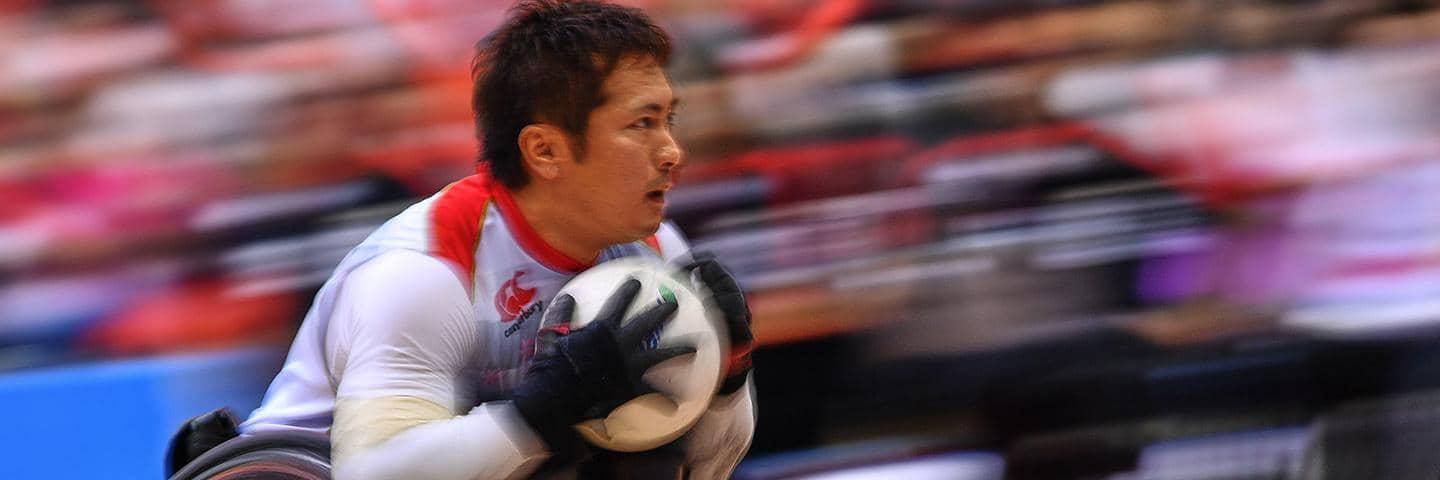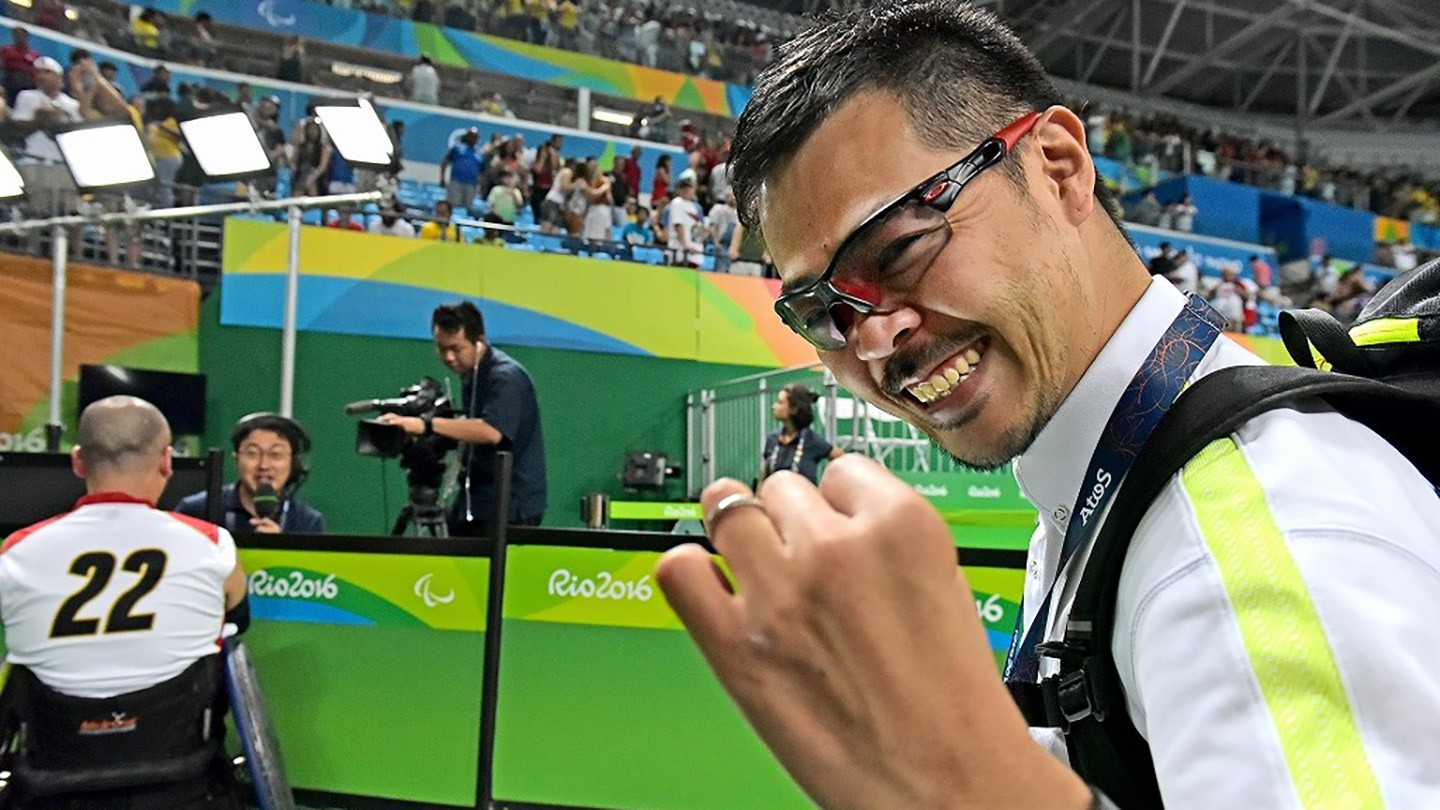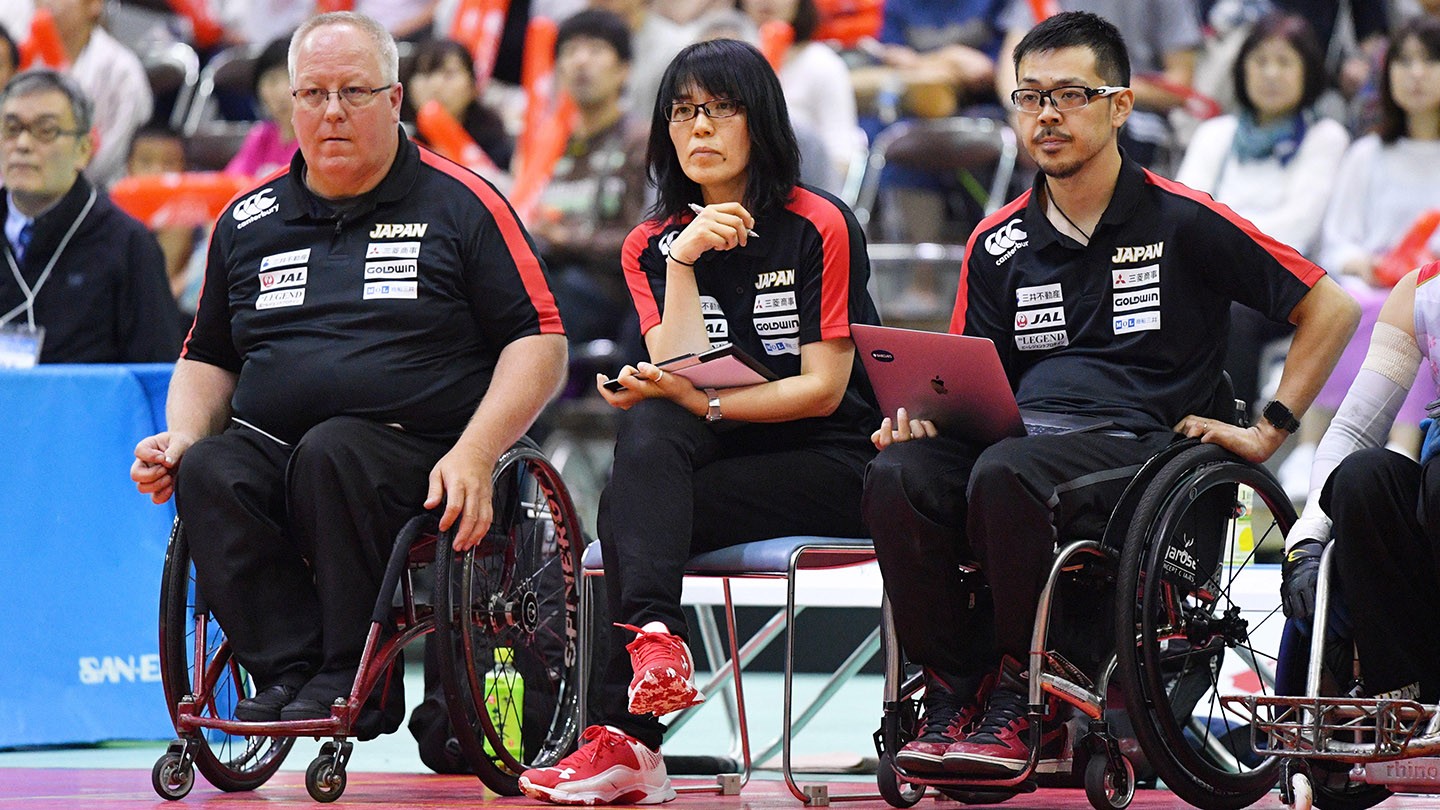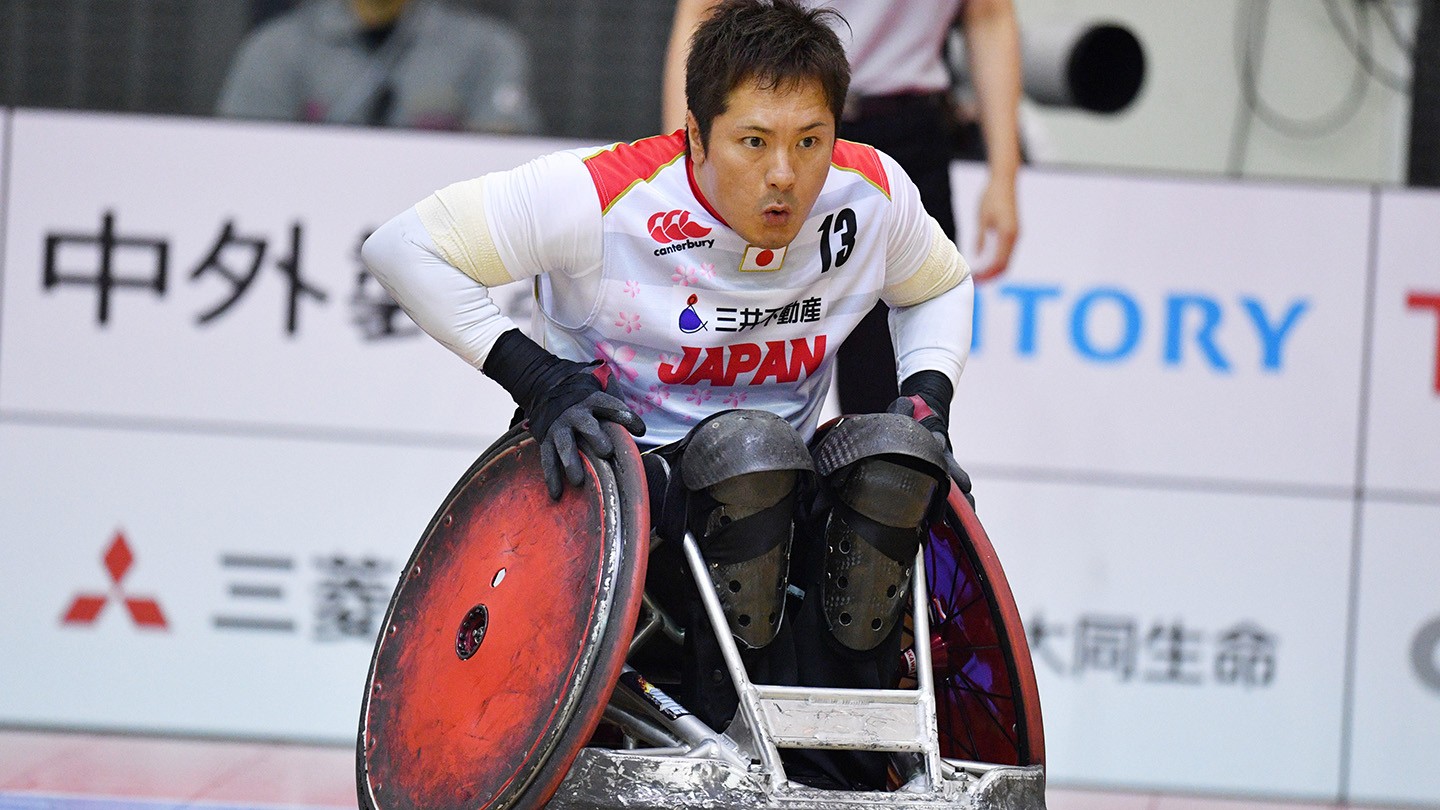
Barclays’ Paralympian colleagues prepare to strike gold in Tokyo
23 August 2021
Two Barclays friends and colleagues will soon be representing Japan in this year’s Tokyo Paralympic Games. As wheelchair rugby player Shinichi Shimakawa and former player and Japan Paralympic Committee member Hiroyuki Misaka prepare to go for gold, they explain how the support they’ve had from the bank has empowered their Paralympian ambitions.
Having joined Barclays in 2011, Hiroyuki Misaka and Shinichi Shimakawa both work together on the Finance team in Tokyo. Their busy day-to-day sees them managing expenses and building reports, while as active members of the bank’s Reach network, they’re committed to raising awareness of the challenges facing colleagues with disabilities – efforts which helped earn them a place on Barclays’ Diversity Business Awards shortlist in 2016.
But if their working lives are busy, their schedules outside the bank must look even more impressive – Shimakawa is one of the stars of Japan’s wheelchair rugby team, currently ranked third in the world. Misaka, meanwhile, helps to manage the team alongside his new role as a chairman of Japan’s Paralympic Committee.
At the moment they are firmly focused on working towards the 2020 Paralympic Games in their hometown this summer – where 22 sports will be contested by more than 4,000 ambitious competitors.

Hiroyuki Misaka celebrates a bronze medal at the Rio games in 2016.
This isn’t the first time that Shimakawa and Misaka have taken part in the games. Both men earned a bronze medal in wheelchair rugby at the Rio games in 2016, and were part of Japan’s winning team in the World Championships in 2018 – Misaka as an assistant coach, and Shimakawa as a player. But winning in Tokyo this year, they say, would be particularly meaningful.
“When I was chosen to represent Japan at the Paralympic Games in Athens 2004, Beijing 2008 and London 2012, I always felt like a challenger going for a medal,” says Misaka. “But the Tokyo 2020 team are expected to win gold medals, so they have an even greater sense of responsibility and determination.”
Preparing for the opposition
Taking part in wheelchair rugby is not for the faint-hearted. It’s a fast-paced, contact sport, played on an indoor court by mixed gender teams of four. Combining elements of rugby, basketball and handball, players are actively encouraged to use their wheelchairs to block and hold opponents. For both Misaka and Shimakawa, discovering the game was a way of recovering their independence.
“When I was 21, I was in a traffic accident that damaged my cervical vertebrae and left me using a wheelchair,” says Shimakawa. “It turned my life upside down. After leaving hospital, I decided to do something physically active and started wheelchair athletics. When a friend invited me to play wheelchair rugby, I wasn’t sure because I disliked group sports. But I quickly became fascinated by the noisy fun it involved, and I’ve now been competing for 22 years.”

Misaka now helps to manage Japan’s wheelchair rugby team, alongside his new role as a chairman of Japan’s Paralympic Committee.
When an occupational therapist introduced me to wheelchair rugby, I found a new goal in life.
Barclays colleague and former Paralympic coach
Wheelchair rugby offered Misaka a new way of developing his passion for sport. “I was born in Higashiōsaka, Osaka Prefecture, where rugby is very popular. I tried many sports before choosing rugby,” he recalls. “But an accident during a game in high school left me using a wheelchair. Initially, I felt hopeless about my future – but when a physical therapist introduced me to wheelchair rugby, I found a new goal in life.”
Misaka’s experience watching the Sydney Paralympics opening ceremony in 2000 sparked his determination to become a Paralympian. Shimakawa, meanwhile, was selected to represent Japan early in his wheelchair rugby career.
“Being part of the team when Japan became world champions for the first time in 2018 left a strong impression on me,” he remembers. “It was the dream I’d been chasing for more than 10 years, and beating the powerful US team in the semi-final was the kind of game you never forget.”
Playing to win with Barclays’ support
Shimakawa says the sport has offered valuable life lessons that he’s taken beyond the court. “My life has had its ups and downs, and there have been times where I’ve hit rock bottom,” he admits. “I’ve never been very good at interacting with people – especially since I’ve been using a wheelchair. But I’ve made so many new friends at home and overseas through wheelchair rugby. Both in competition and in life, I believe that you should never give up.”
“There’s always a ‘one for all, all for one’ mindset, and a ‘How can I do it?’ mentality,” Misaka adds, “rather than an ‘I can’t do it’ attitude.”
Because Barclays is a global company, it feels very empowering to have support from all over the world.
Barclays colleague and Paralympian

Chosen to represent Japan early in his career, Shimakawa will again be competing for his country at the Tokyo 2020 Paralympic Games.
Balancing work alongside demanding training commitments, both athletes are immensely appreciative of the support they have received from Barclays in the run-up to the 2020 Games.
“In total, I’m training about five days every week,” says Shimakawa. “In fact, I’m pushing myself so hard, I can almost hear my body creaking! But everyone has been very supportive, and I talk with my direct supervisor in weekly update meetings. I’m very grateful to have been given the flexibility to work from home, and to have been given an environment where I can concentrate on my Paralympics training.
“I’m the oldest player on the team, and I hope that by showing the younger players just how hard I work, they’ll do their best to keep up with me.”
Life may not be as physically demanding for Misaka, now that he’s not playing himself, but he has welcomed the support and flexibility he has been offered by the bank. “I’ve been able to prepare well since my office allowed me to adjust my work balance,” he explains. “I spend my working hours in the office, and the rest of my time is allocated to planning, personal training, coaching and studying wheelchair rugby.”
As colleagues across the bank’s network get ready to watch the event, Misaka and Shimakawa reflect on the encouragement they’ve received.
“Because Barclays is a global company, it feels very empowering to have support from all over the world,” says Shimakawa. “I want to repay that support by winning a gold medal.”